A-level chaos as Ucas clearing website crashes after top grades plunge by biggest drop on record
Overall A-level pass rate at lowest level for 15 years as government backs decision to return to pre-pandemic grading
Top A-level results have plunged by the biggest drop on record, as the overall pass rate has hit its lowest level for 15 years.
The Ucas website crashed as hundreds of thousands of pupils across the country received their grades on Thursday, causing chaos for those hoping to secure a university place.
It comes as the 19,000 students who did not get accepted scrambled for clearing places after the latest figures showed the number of pupils accepted onto UK degree courses fell 2.6% on last year.
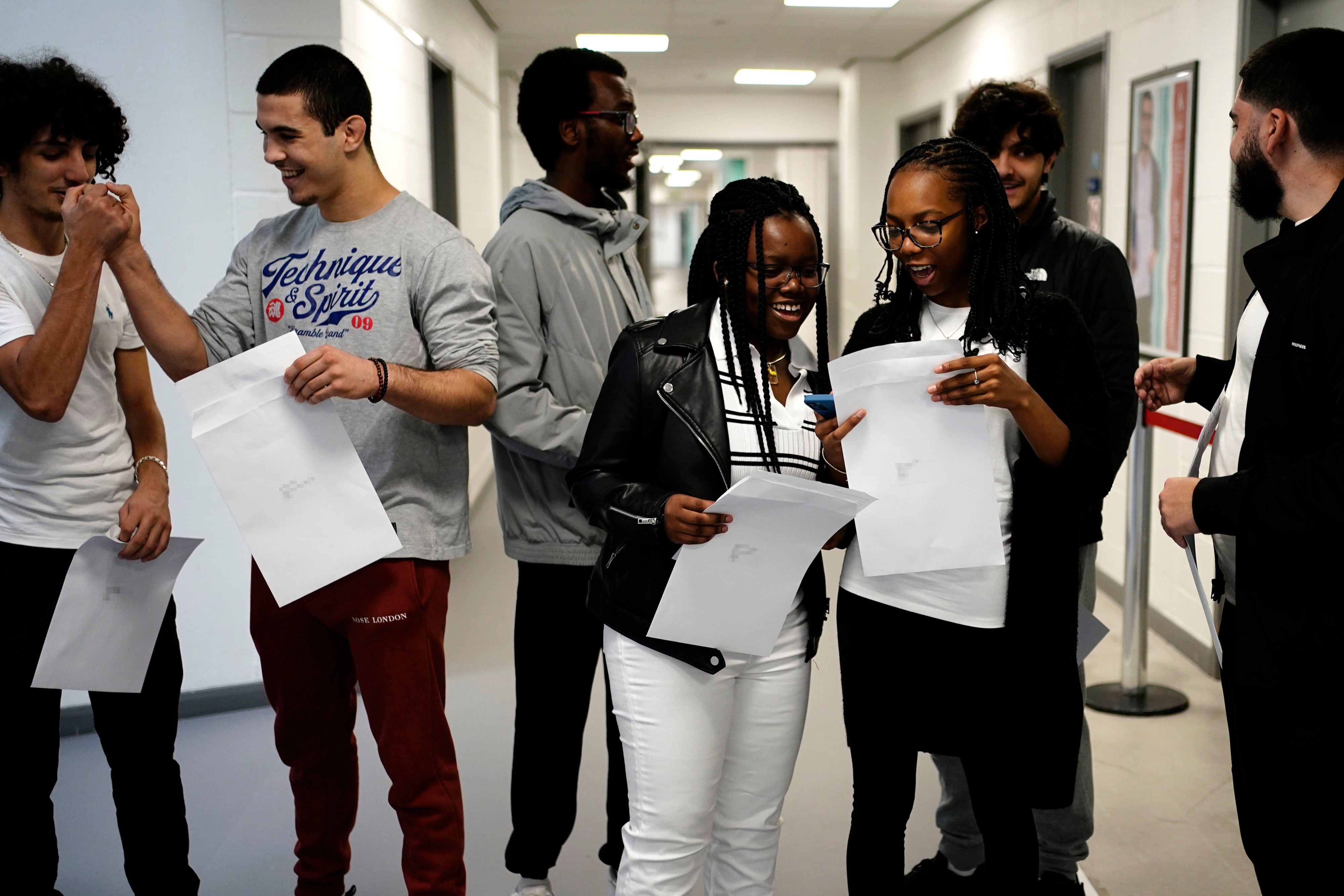
The Department for Education confirmed the drop of top A-level grades by nearly 10 percentage points from last year is the biggest ever.
Ministers and the exams regulator in England aimed to return grades this year similar to that of 2019, with the Education Secretary insisting the latest UCAS figures illustrated how the UK Government was “right to put the grading system back to normal”.
National figures show the proportion of A-level entries awarded top grades is down by 9.2 percentage points on 2022. Just over a quarter (27.2%) of UK entries achieved an A or A* grade this year, compared to 36.4% last year.
This was still higher than in 2019 – the last year that summer exams were taken before the pandemic – when 25.4% of entries were awarded A or A* grades.
But the proportion of entries graded A* to E has fallen to 97.3% this year, which is lower than both 2022 (98.4%) as well as the pre-pandemic year of 2019 (97.6%) - and is the lowest overall pass rate since 2008 when it stood at 97.2%.
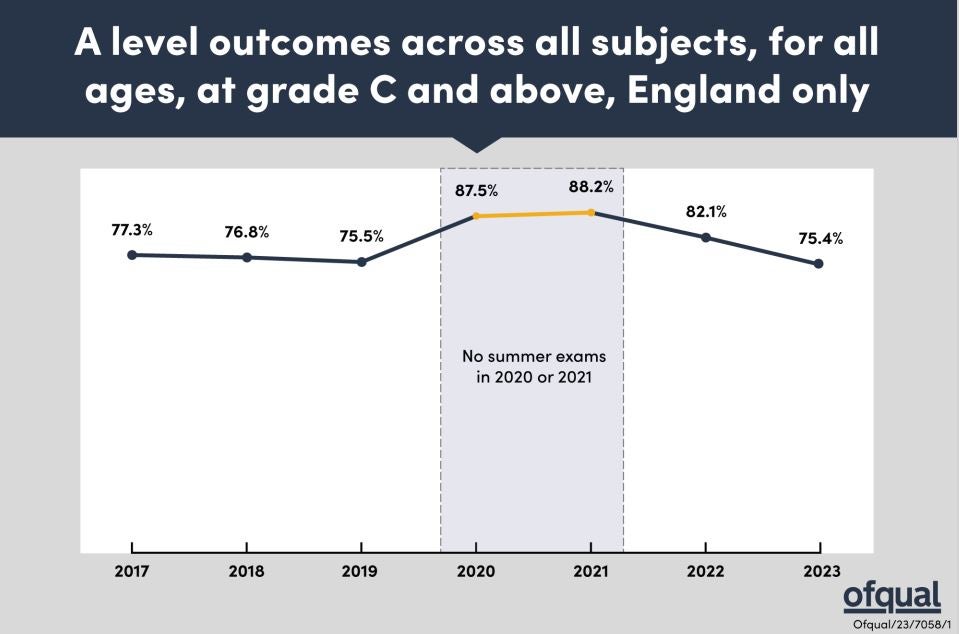
The figures, published by the Joint Council for Qualifications (JCQ), cover A-level entries from students in England, Wales and Northern Ireland.
Geoff Barton, general secretary of the Association of School and College Leaders (ASCL), described a “sharp fall” in the highest A-level results. He said: “The proportion of students achieving the top A-level grades has fallen sharply this year, not as a result of underperformance, but because the grading system has been adjusted in the wake of the pandemic so that the distribution of grades in England is similar to 2019.”
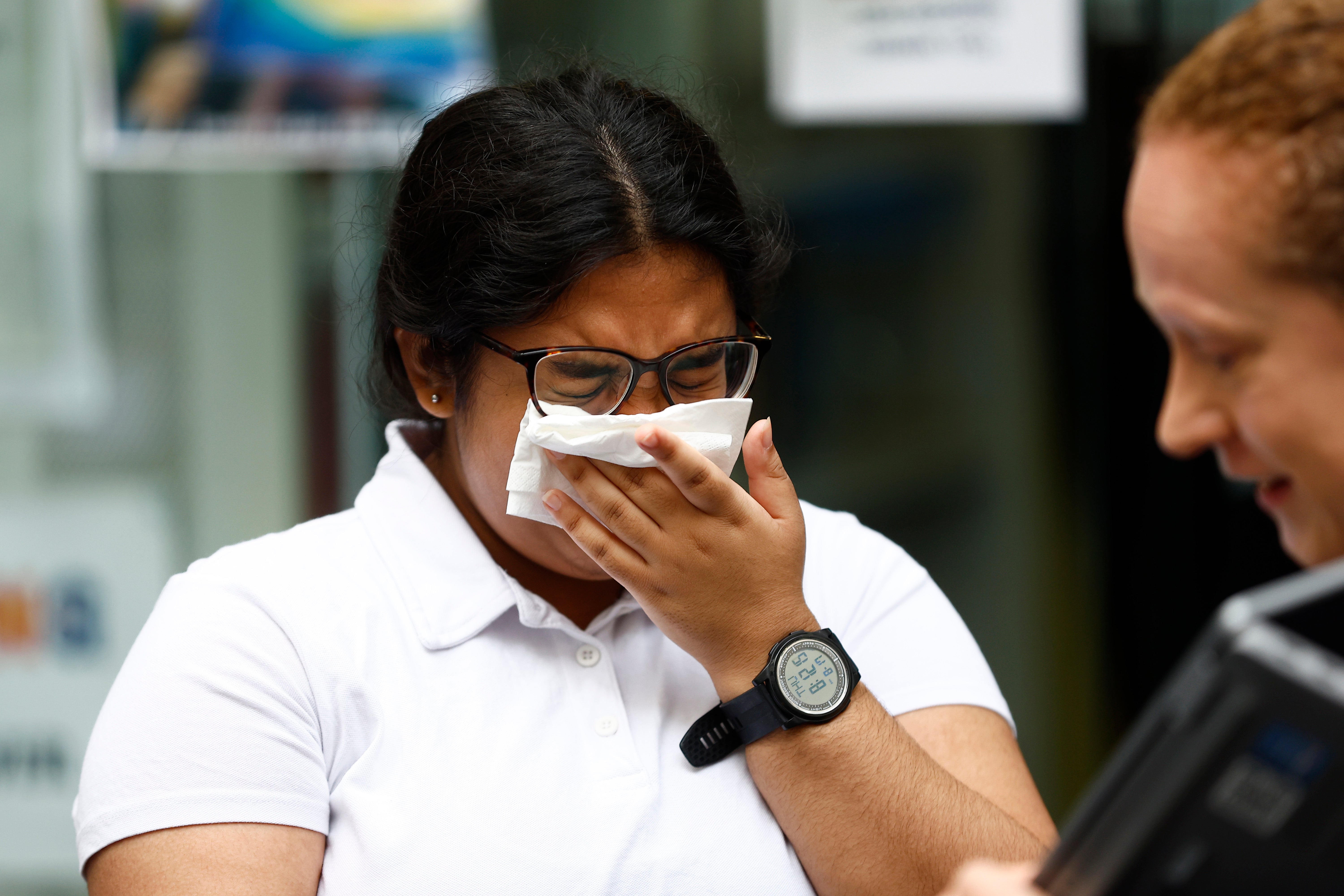
He added: “Whatever the rationale, however, it will feel like a bruising experience for many students, as well as schools and colleges which will have seen a sharp dip in top grades compared to the past three years.”
Amid exams regulator Ofqual’s warnings that this year’s A-level results in England would be lower than last year, it has also been suggested that school leavers are facing more competition for university places this year due to a growth in 18-year-olds in the population and international demand.
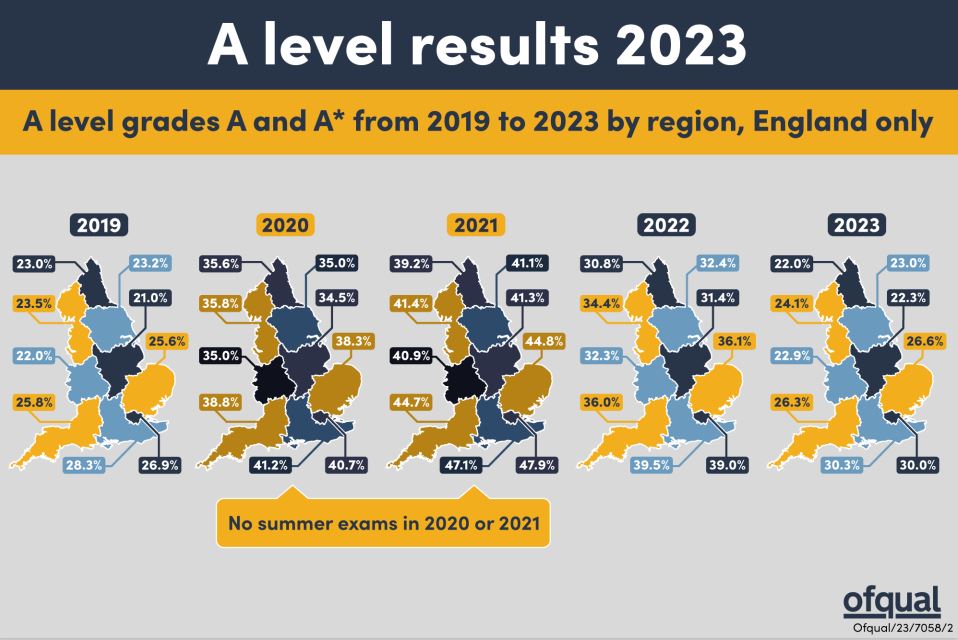
Further fuelling the fears of disappointment has been the potential for this cohort of students to have higher expectations, having not sat GCSE exams and instead been awarded teacher-assessed grades amid the pandemic, leading to record-high GCSE results in 2021.
Pupils have been receiving their A-Level results and logging on to the Ucas website to find out the status of their university applications from 8am on Thursday, as the organisation released its initial figures.

There has been a drop of 2.6% in the number of UK students who have secured their first choice of university or college when compared to last year. Of those who have had a decision made regarding their application so far, 79% have gained a place at their first choice, whereas 81% did so in 2022 when exams were reintroduced. In 2019, the last time grading arrangements were the same as this year, the figure stood at 74% on results day.
Overall, 414,940 applicants have gained a place at university or college – down on 425,830 last year (-2.6%) but an increase on 408,960 in 2019 (+1.5%). For UK 18-year-olds, 230,600 have been accepted, a decline from 238,090 in 2022 (-3.1%) but up on 199,370 in 2019 (+15.7%).

A Ucas spokesperson said that, at the time results were released, “a small number of students may have been affected by the website running slow but this was quickly resolved”, adding: “All students were able to access their decisions on email and we can see that three-quarters of applicants have opened their emails.”
In response to the organisation’s figures, Gillian Keegan told BBC Radio 4’s Today programme: “79% of those students receiving their results today got their first choice of university. And that is up from 74% in 2019 ... So hopefully that will lead everybody to understand that we were right to put the grading system back to normal.”

She also said this year’s A-levels cohort had “a lot to deal with” and had shown “incredible resilience” as she congratulated them on their grades.
Covid-19 led to an increase in top A-levels grades in 2020 and 2021, with results based on teacher assessments instead of exams.
The Department for Education said the years between 2019 and 2021 consequently saw the biggest two-year increase in grades A and above, so “it is understandable that this year saw a big decrease as we return back to 2019 levels”.
Overall, the proportion of UK entries awarded the top A* grade this year has fallen by 5.7 percentage points to 8.9% compared with 14.6% in 2022, but it is higher than when it stood at 7.7% in 2019.

Boys have pulled ahead of girls at the top grade this year after female entries were in front for the last three years, with A* grades at 9.1% for the former compared with 8.8% for the latter.
Girls continued to outperform boys at A* and A but the gender gap has narrowed again this year.
A total of 3,820 students in England alone scored three A* grades, according to separate figures from exams regulator Ofqual.

This is down from 8,570 last year, but up from 2,785 in 2019.
In Wales, results are expected to be “broadly midway” between those awarded in 2022 – the first year students sat exams following the pandemic – and 2019.
In Northern Ireland, results are expected to return to pre-pandemic levels next year.
Many A-level students in Wales and Northern Ireland were given advance information about topics to expect in their exam papers this summer but students in England were not given the same support.
Ofqual said it built protection into the grading process in England this year to recognise the disruption that students have faced, which should have enabled a student to get the grade they would have received before the pandemic even if the quality of their work is a little bit weaker due to disruption.
Join our commenting forum
Join thought-provoking conversations, follow other Independent readers and see their replies
Comments
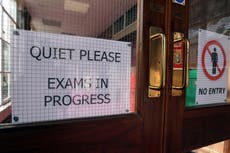

Bookmark popover
Removed from bookmarks